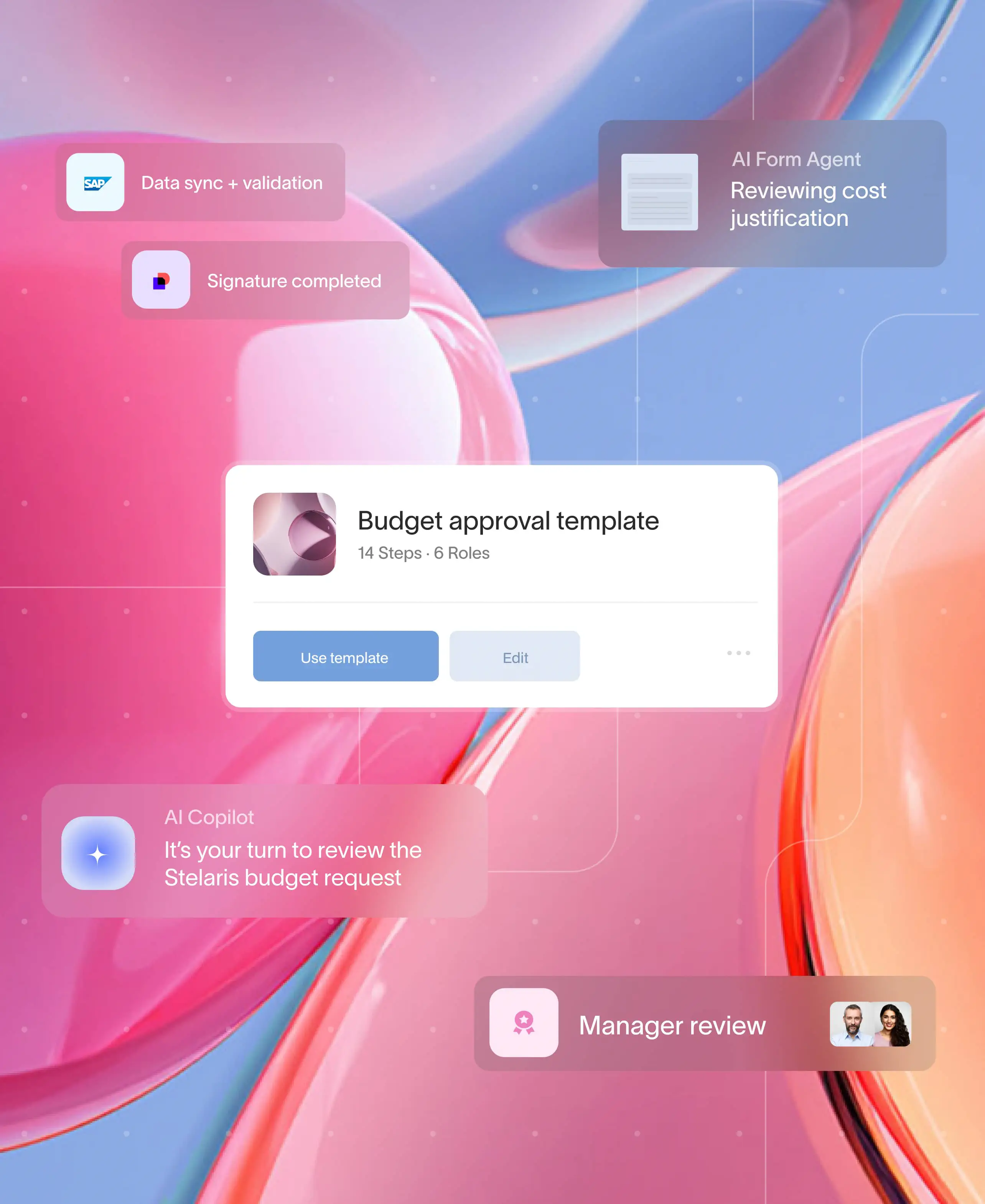
Imagine walking into your favorite coffee shop. The barista greets you by name, knows your usual order, and even asks about your recent vacation. You feel valued, appreciated, and more than just a transaction. This is the magic of transforming customer satisfaction into customer loyalty.
Customer satisfaction and loyalty are often used interchangeably, but they represent different facets of the customer experience. While many businesses strive to satisfy their customers, few succeed in fostering genuine loyalty. Understanding both is crucial for any business aiming to thrive in a competitive market. Let's explore the critical differences between customer satisfaction and loyalty, and discover how to elevate your customers from being merely content to becoming passionate brand ambassadors.
What is customer satisfaction
Customer satisfaction is a measure of how well your products or services meet or exceed customer expectations. It's an immediate, short-term metric that reflects a customer's contentment following a purchase or service interaction. Depending upon the nature of your product or business there could be several unique factors that affect customer satisfaction. High customer satisfaction indicates that you're effectively addressing customer needs and delivering value.
How to measure customer satisfaction effectively
To measure customer satisfaction, businesses employ several methods:
- Customer satisfaction surveys: These surveys ask customers to rate their experience on a scale, typically from 1 to 5 or 1 to 10.
- Feedback forms: Open-ended questions allow customers to provide detailed feedback about their experience.
- Online reviews and testimonials: Monitoring platforms like Yelp, Google Reviews, and social media can provide insights into customer sentiments.
By regularly collecting and analyzing this data, you can identify areas for improvement and be on track to improving customer satisfaction.
While customer satisfaction is about meeting expectations, customer loyalty is about creating lasting relationships that encourage customers to return and promote your brand to others.
What is customer loyalty?
Customer loyalty refers to a customer's commitment to repurchase or continue to use a brand's products or services. It's characterized by a deep emotional connection and a preference for your business over competitors. Loyal customers are more likely to make repeat purchases, try new products, and recommend your business to others.
Metrics for assessing customer loyalty
Measuring customer loyalty involves tracking various indicators:
- Net promoter score (NPS): This metric assesses how likely customers are to recommend your brand to others on a scale of 0 to 10.
- Repeat purchase rate: The percentage of customers who make more than one purchase over a specific period.
- Customer lifetime value (CLV): An estimate of the total revenue a business can expect from a single customer over the duration of their relationship.
- Referral rates: How often customers refer new clients to your business.
By analyzing these metrics, you can develop strategies to strengthen customer loyalty and drive long-term growth.
Customer satisfaction vs customer loyalty: Why the distinction matters
Understanding the difference between customer satisfaction and customer loyalty is essential for creating effective business strategies.
- Transactional vs relational: Customer satisfaction is transactional, focusing on individual interactions. Customer loyalty is relational, emphasizing long-term connections.
- Behavioral outcomes: Satisfied customers may not necessarily return, whereas loyal customers exhibit consistent purchasing behavior.
- Emotional engagement: As opposed to customer satisfaction, loyalty involves an emotional attachment to your brand, leading customers to choose you even when alternatives are available.
While customer satisfaction is essential, it’s often a short-term metric—it’s easy to achieve, but its impact on business growth can be limited. True loyalty, on the other hand, is harder to cultivate but offers lasting benefits, driving more significant business value and fostering stronger brand connections. Recognizing the importance of customer satisfaction and loyalty helps you allocate resources effectively, ensuring you're not just meeting customer needs but also building lasting relationships.
The importance of customer satisfaction and loyalty in business growth
Both customer satisfaction and loyalty play pivotal roles in driving business success.
- Revenue growth: Loyal customers contribute significantly to sales through repeat purchases and higher spending.
- Cost efficiency: Acquiring new customers is often more expensive than retaining existing ones. Focusing on loyalty can reduce marketing and acquisition costs.
- Brand advocacy: Loyal customers are more likely to recommend your business, providing valuable word-of-mouth marketing.
By prioritizing customer satisfaction and loyalty, you create a stable foundation for sustainable growth and a competitive edge in the market.
How loyal customers help businesses acquire new clients
Satisfied customers are the foundation of loyalty; when they trust and enjoy your brand, they return willingly. The first step to building loyalty is delivering an exceptional customer experience every time.
Loyal customers are more than repeat buyers—they’re open to exploring more of what you offer, making them prime candidates for upsell opportunities. Since they already trust your brand, introducing complementary products or premium services feels like a natural next step. Beyond just purchasing, loyal customers become your advocates:
- Word-of-mouth referrals: Personal recommendations from loyal customers carry significant weight and can influence purchasing decisions.
- Positive online presence: Loyal customers often leave favorable reviews and engage with your brand on social media, enhancing your reputation.
- Constructive feedback: They provide honest insights that can help you refine products and services, attracting new customers seeking quality and reliability.
Investing in customer loyalty vs customer satisfaction alone amplifies your marketing efforts and extends your reach organically.
Transforming satisfied customers into loyal advocates
Turning customer satisfaction and customer loyalty into a seamless journey requires deliberate strategies focused on personal connection and added value.
Personalize the customer experience
Personalization shows customers that you value them as individuals.
- Customized communications: Use customer data to send personalized emails, recommendations, and offers that align with their interests.
- Segmented marketing: Tailor your messaging based on customer segments, enhancing relevance and engagement.
- Recognize milestones: Celebrate birthdays, anniversaries, or customer loyalty milestones with special deals or messages. Certain platforms like Moxo let you automate this process with workflows.
Engage consistently and meaningfully
Regular, meaningful interactions keep your brand top of mind.
- Content sharing: Provide valuable content that will resonate with your customers through blogs, newsletters, or social media.
- Community building: Foster a sense of belonging through online communities or events where customers can connect with your brand and each other.
- Feedback loops: Encourage and act on customer feedback, showing that their opinions shape your business.
Exceed expectations at every touchpoint
Going above and beyond transforms customer satisfaction into loyalty.
- Exceptional service: Empower your team to resolve issues promptly and delight customers with unexpected solutions.
- Surprise and delight: Offer unexpected perks like complimentary upgrades, gifts, or handwritten thank-you notes.
- Consistency across channels: Ensure a seamless experience whether customers interact online or via customer service.
By implementing these strategies, you not only enhance customer satisfaction and loyalty but also differentiate your brand in a crowded marketplace.
How Moxo enhances client experience to build loyalty
At Moxo, we understand the critical role that exceptional client experience plays in fostering customer satisfaction and loyalty. Our platform is designed to streamline interactions and deepen client relationships.
- Personalized client portals: Clients enjoy customized portals that cater to their specific needs and preferences.
- Efficient workflows: Automated processes and real-time updates keep clients informed and engaged throughout their journey.
- Secure collaboration: Our robust security features ensure that sensitive information is protected, building trust with clients.
By leveraging Moxo's innovative solutions, businesses can effectively transform customer satisfaction and loyalty into powerful drivers of growth.
Get started with Moxo to deliver delightful client experiences.
Conclusion
Achieving customer satisfaction is merely the starting point. The true differentiator lies in cultivating customer loyalty, where customers become enthusiastic promoters of your business. By understanding the nuances of customer satisfaction vs customer loyalty, and implementing strategies that prioritize personalization, engagement, and exceeding expectations, you can foster deep, lasting relationships.
Remember, the importance of customer satisfaction and loyalty cannot be overstated. Satisfied customers may appreciate your products or services, but loyal customers will champion your brand, contributing to sustained success and a robust competitive advantage. Invest in strategies that elevate satisfaction to loyalty, and watch your business thrive.
Get started with Moxo to deliver delightful client experiences.
FAQs
How does customer loyalty impact long-term business success?
Customer loyalty drives long-term success by ensuring repeat business, increasing customer lifetime value, and generating word-of-mouth referrals. Loyal customers are more likely to try new products and services, providing a stable revenue stream and reducing marketing costs associated with acquiring new customers.
Can a business have high customer satisfaction but low customer loyalty?
Yes, a business can have high customer satisfaction but low loyalty if customers are satisfied with individual transactions but lack an emotional connection to the brand. Factors like better engagement and better customer service from competitors can lead satisfied customers to switch brands.
What technologies can assist in enhancing customer satisfaction and loyalty?
Technologies like customer relationship management (CRM) systems, personalized marketing automation, and platforms like Moxo that streamline client interactions can significantly enhance customer satisfaction and loyalty by improving efficiency and personalization.
How important is transparency in building customer loyalty?
Transparency builds trust, a foundational element of customer loyalty. Being open about business practices, and pricing, and responding honestly to customer inquiries strengthens the relationship and encourages long-term commitment.
Can loyalty programs effectively increase customer loyalty?
When designed thoughtfully, loyalty programs can incentivize repeat purchases and engagement. However, they should offer genuine value and align with customer needs to be truly effective in enhancing loyalty.





